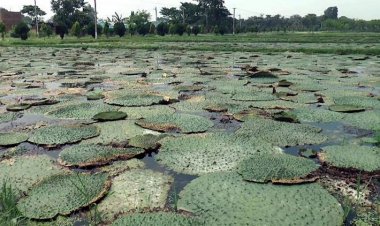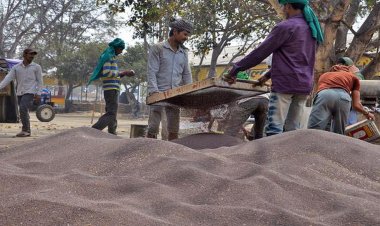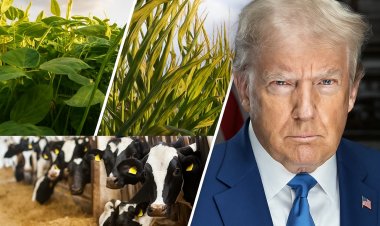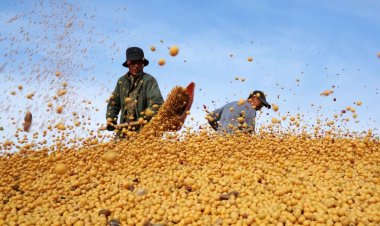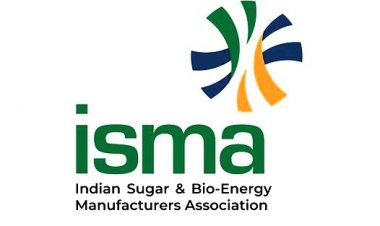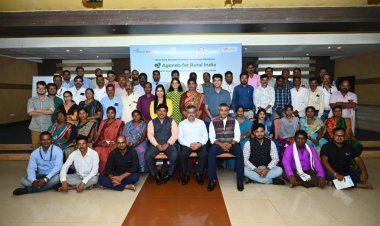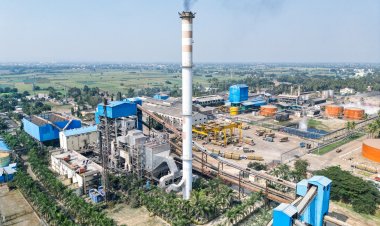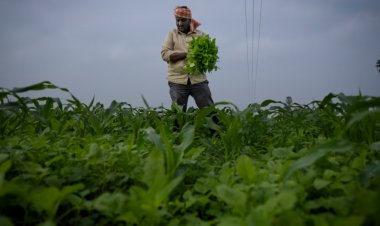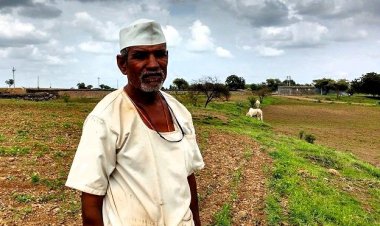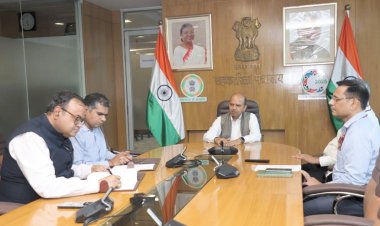Use cowdung as organic manure to improve soil health: Niti Aayog
The report of the Task Force noted that cow dung is a major produce of Gaushala, but it faces several challenges in realising its economic value. Gaushalas should be help through capacity development and other means to generate income from “gobar” (cow dung). This should include proper processing of gobar using biogas plants, value addition, marketing and certification of the cow dung based organic as well as bio-fertilisers.
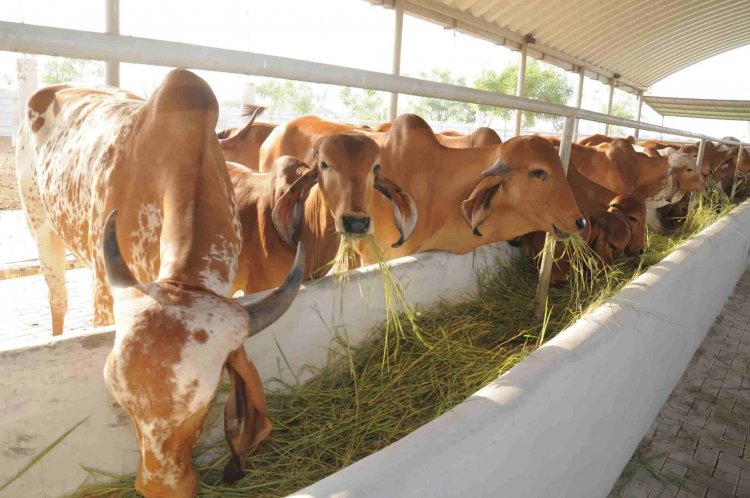
Noting that India’s soils are getting depleted of organic matter, the Niti Aayog has said if application of organic manure and such other sources to soil is not increased, the country will face serious sustainability challenges. Against this scenario, it has released a report on “Production and Promotion of Organic and Bio fertilisers with Special Focus on Improving Economic Viability of Gaushalas”.
The report of the Task Force noted that cow dung is a major produce of Gaushala, but it faces several challenges in realising its economic value. Gaushalas should be help through capacity development and other means to generate income from “gobar” (cow dung). This should include proper processing of gobar using biogas plants, value addition, marketing and certification of the cow dung based organic as well as bio-fertilisers, it said.
The task force, headed by NITI Aayog Member Ramesh Chand, has said that heavy subsidy on inorganic fertilisers, especially on urea, discourages use of organic sources of nutrients, which do not get any subsidy. “There is a need for some parity in support for chemical fertilisers vis-a-vis organic and cow dung and cow urine-based compost, manures, jivamrit, ghanjivamrit and other organic fertiliser formulations. This will help gaushalas to earn sizeable income from cow dung and cow urine,” the report said.
Also Read This: NITI Aayog panel pitches for capital assistance for gaushalas
Gaushalas themselves lack capacity to market compost and other organic fertilizer produced by them and there is no organised market and buyer for their produce. Public sector fertiliser distribution agencies like IFFCO, KRIBHCO and such state level agencies should be mandated to market standardised organic and bio-fertiliser produced by Gaushalas.
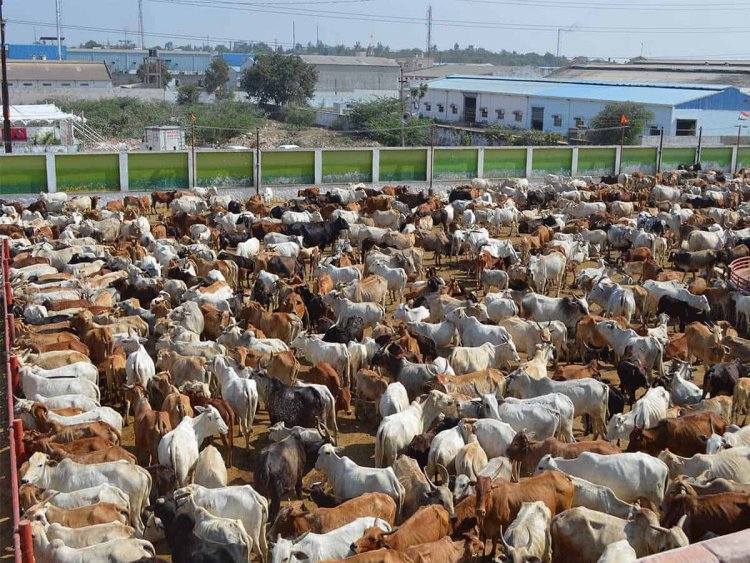
“India’s soils are getting depleted of organic matter. If application of organic manure and such other sources to soil is not increased, the country will face serious sustainability challenges. Nutrition quality of food produced from the soil poor in organic matter is also poor. Promoting use of cow dung manure will go a long way to improve economy of gaushalas, support natural farming and improve sustainability of agriculture,” the reported pointed out.
Therefore, cow dung and cow urine should be encouraged to be applied as plant nutrient supplement in farming. Also, innovative mechanism needs to be put in place to mandate fertiliser selling and manufacturing agencies to sell inorganic and organic fertiliser in some ratio, it suggested.
A trend has started to use agri biomass which is generally wasted, like paddy straw and stubble (parali), for producing compressed bio gas (CBG) using the method of anaerobic digestion. This process produces much better output when animal dung is mixed with plant biomass. Adding 20 per cent gobar to the biomass gives best result.
A new scheme, like Sustainable Alternative towards Affordable Transportation (SATAT) and Galvanizing Organic Bio-Agro Resources (GOBARdhan) schemes should be launched in Central sector under the Ministry of Agriculture and Ministry of Animal Husbandry to use agri bio-waste and cattle waste available with gaushalas to produce CBG and organic manure from the slurry left after producing CBG. Special incentive to procure gas from such plants should be made and linked with payment of reasonable price to gaushalas for the cattle manure.
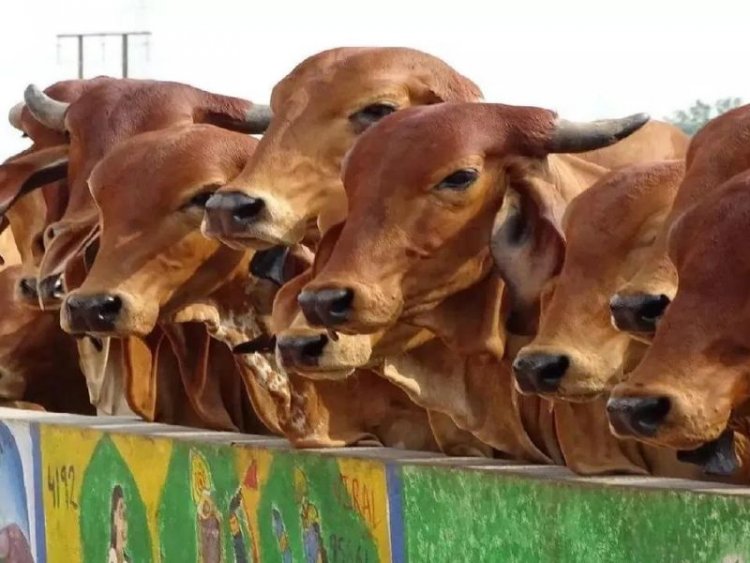
The Task Force Report said interested gaushalas should be helped through capital assistance and marketing of cow dung and cow urine-based formulations for application in agriculture. This will require some viability gap funding. NITI Aayog at the request of the Taskforce got a study done from National Council of Applied Economic Research (NCAER) to prepare technical parameters and estimates of investments and benefits and costs of possible economic activities by gaushalas.
The study shows that in gaushalas, the two major components of variable costs are feed and fodder, which constitute over 91 per cent of the variable expenses. Among the fixed cost components, land constitutes the dominant expense (if not received through donations) and its share is 99 percent. In sum, the total cost of running a gaushala of 1,000 cows works out to be Rs. 1,18,182 per day including land, while without land it is around Rs. 82,475.
The survey shows that the income from the sale of products from gaushalas contributes only 30 per cent share, while the rest is contributed by the combined receipts from donations, grants, and miscellaneous sources. The total income per day for a unit of 1,000 cows is only Rs. 50,074. This leaves large revenue gaps and renders Gaushalas economically nonviable.
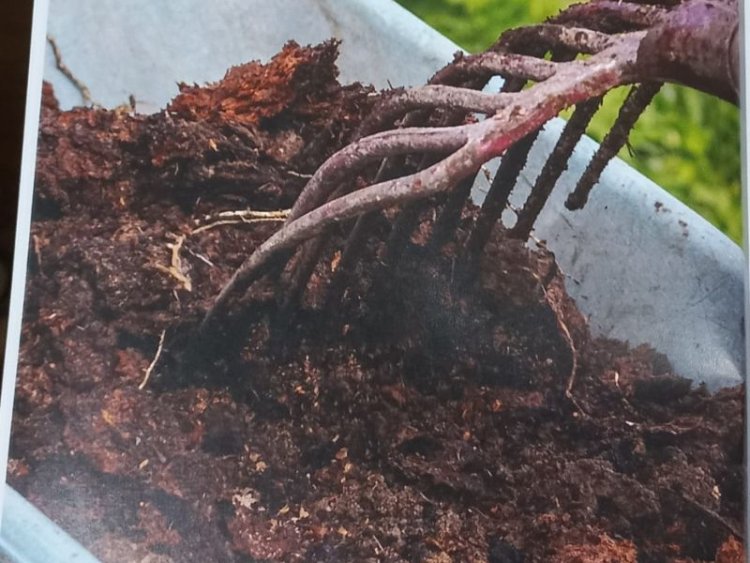
To cover the revenue gap, gaushalas may be helped to make biogas and value-added products like vermi-compost, phosphate-rich organic manure (PROM), bio-fertilisers, bio-pesticides, and other products. Potential partners in the private sector, such as large corporations, non-profits, and philanthropic organisations can provide financial and other support to gaushalas (especially power and fertiliser companies).
A portal should be created like Darpan portal of NITI Aayog for online registration of all Gaushalas. These registered Gaushala will be eligible to get support from animal welfare board. Animal welfare board may open Pradhan Mantri Pashu Aushadhi Kendra in these Gaushala to address gaps in the health sector. Also, NDDB may support gaushalas in marketing of dairy products and provision of feed, fodder and ethno-veterinary practices. The standards prescribed for cow dung based organic fertilisers in the Fertiliser Control Order of the GoI should be revisited for wider inclusion of cow dung and cow urine–based products, it said.
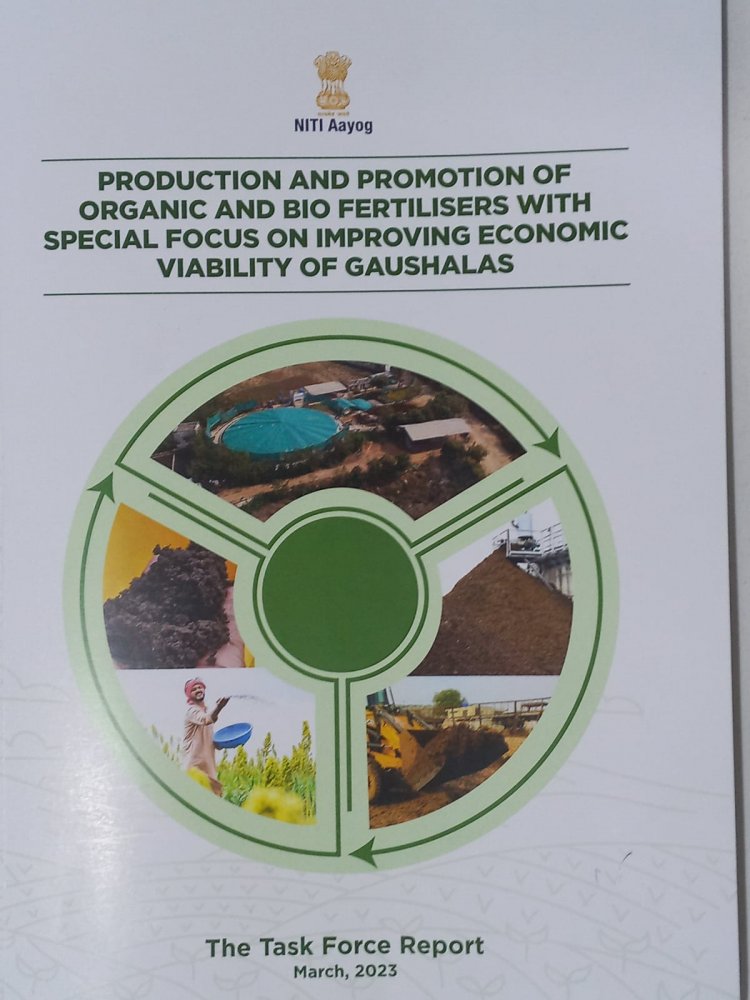
Specific policy measures and support is required to encourage the commercial production, packaging, marketing & distribution of cow dung based organic fertilisers including brand development. Private sector should be attracted to invest in mass scale production of organic and bio fertiliser, bio pesticides, soil enriching products, and stimulants for use in agriculture and various types formulations for use in households.
The report said the goal of promoting natural farming in the country should be integrated with cow economy and products like Jivamrit, Neemastra, Brahmastra, and Dashparni ark should be encouraged in farming practices. Public sector institutions and parastatals should be mandated to market organic and bio fertilisers produced by Gaushalas. They should also be encouraged to set up cow dung based organic fertilisers plants.
The Task Force suggested that the possibility of integrating chemical fertilisers with cow dung based organic fertilisers (similar to ethanol blending in petroleum concept) should be explored.



 Join the RuralVoice whatsapp group
Join the RuralVoice whatsapp group


















